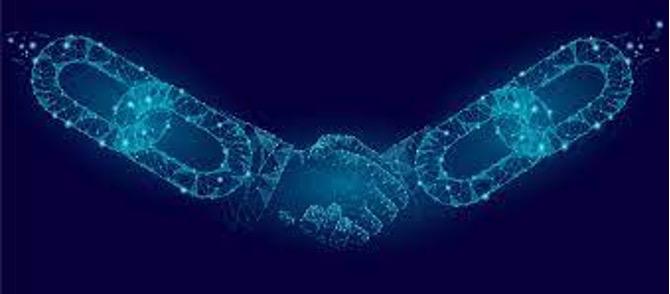Unleashing the Power of Tokenized Economies: Insights from the World Economic Forum 2023 and the TANGO Project

The World Economic Forum 2023 session, “Tokenized Economies, Coming Alive,” was a thought-provoking discussion on tokenization's role in shaping the global economy's future. The session was moderated by Michael Casey and featured prominent speakers such as Jeremy Allaire, "Topp" Jirayut Srupsrisopa, Timo Harakka, and Beryl Li.
Tokenization has become a hot topic in the financial world, and its impact on the global economy was front and center at the World Economic Forum 2023 session. One of the key takeaways from the session was the importance of blockchain technology in enabling the growth of tokenized economies. In addition, the speakers discussed how tokenization could increase transparency, reduce fraud, and improve the efficiency of transactions, leading to increased trust in financial systems.
The speakers also discussed relevant EU policies' role in shaping tokenized economies' future. For example, the EU's focus on digital innovation and developing a digital single market is expected to play a significant role in driving the growth of tokenized economies in the region. The EU's General Data Protection Regulation (GDPR) also provides a framework for protecting personal data in the tokenization process, which is crucial in ensuring the security and privacy of users.
EU crypto and blockchain policies also play a crucial role in shaping the future of tokenized economies. According to a report by the European Parliament, the EU crypto market is expected to reach €1.5 trillion by 2030, and EU policies are aimed at promoting innovation and competition in the crypto market while ensuring consumer protection.
One example of the positive impact of EU policy application is the TANGO project. The project establishes a stronger cross-sector data sharing, in a citizen-centric, secure and trustworthy manner, by developing innovative solutions while addressing environmental degradation and climate change challenges. One way to deliver such goal is by developing an energy-efficient blockchain-agnostic platform. The TANGO project, ensures that such a solution is compatible with major blockchain protocols such as Ethereum, Fabric, and R3 Corda, which helps to drive growth in the tokenized economy by providing a flexible and accessible solution for many stakeholders. This solution will facilitate the synchronisation across all major types of databases that different institutions may be using, allowing them to retain data where it is currently stored.
One of the key benefits of blockchain technology for identity and data management is its ability to increase security and reduce the risk of data breaches. According to a report by Accenture, the use of blockchain technology in identity and data management could save the EU up to €11 billion in reduced costs from fraud prevention and data breaches.
Furthermore, blockchain technology can also help to increase the efficiency of identity and data management processes by reducing the need for intermediaries and providing real-time data updates for all participants. The TANGO project, by providing a solution, can improve the flow of data between EU member states, leading to increased collaboration and innovation.
Data from the European Commission supports the positive impact of blockchain technology on identity and data management in the EU. In a recent survey, 70% of EU businesses reported that blockchain technology has improved the efficiency of their identity and data management processes, and 60% of EU businesses reported that blockchain technology has increased their data security.
In conclusion, the “Tokenized Economies, Coming Alive” session at the World Economic Forum 2023 highlighted the exciting potential of tokenization in shaping the future of the global economy. The TANGO project and EU policies provide a glimpse into how tokenization can drive innovation, increase efficiency, and promote trust in economic systems. As the world moves towards a more digital future, tokenization's role is becoming increasingly important. It will be fascinating to see how it continues to evolve and shape the future of the global economy.